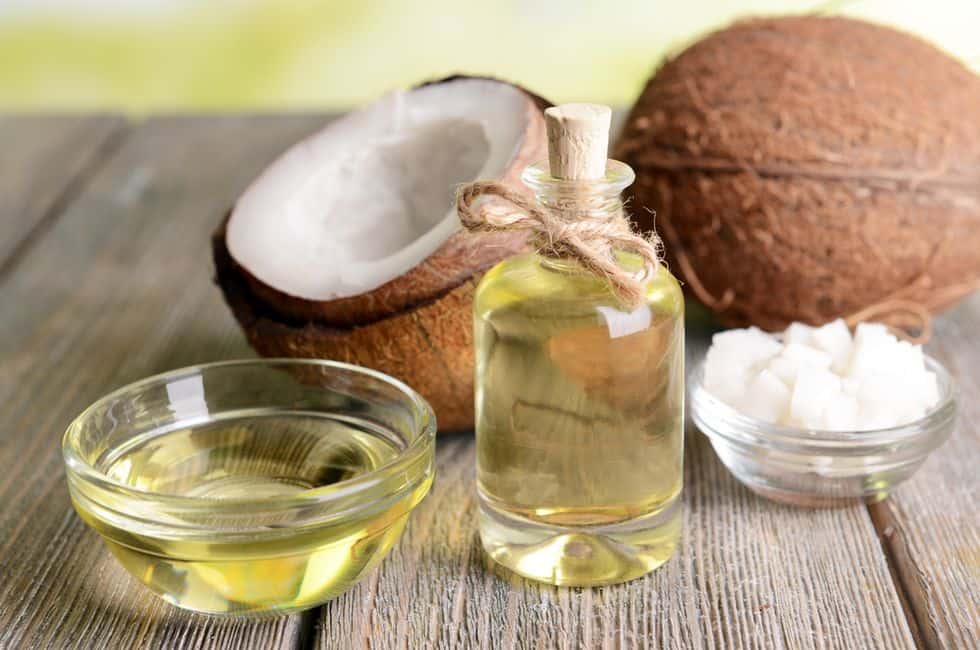We know that coconut oil has plenty of benefits for our health as it brings a lot of good fats in our diet. We also know that it can be used efficiently as a skin moisturizer which can do miracles for our skin. But can it bring the same advantages for our hair?
The truth is that it can successfully replace any hair care mask and oil if it is used correctly and if you don’t overdo it. If your hair is bleached or if you intend to lighten it, you can also use coconut oil to smooth this process. Here’s a complete guide on how to do that!
If you are wondering if you can use coconut oil before bleaching your hair, the short answer is yes. Not only that you can use it, but you should incorporate it into your beauty routine thanks to all the nutrients it can bring to your beautiful hair.
Keep reading to find out everything you need to know about this and how you can make the most out of coconut oil when it comes to your bleached hair!
Can you use coconut oil before bleaching the hair?
If you decided to bleach your hair, you should be prepared for a bunch of aspects that you need to consider to keep your hair healthy on top of any change you might want to do to it.
Bleaching your hair will add a significant amount of stress to it. This is the type of process that even experienced hairstylists are reluctant to do on their clients because of the damage it can bring.
And if you are one of those people who like to change their hair color often and in a radical way, bleaching might be something you do twice or even more times a year. This can take away a significant part of beauty from your hair and leave you with a dull hair that lacks softness and shine.
Bleaching your hair means that you will be applying a bunch of chemicals to it to wash out the color it has until it turns out to be a blondish-whitish shade. The exact shade of blonde that you will get after bleaching will depend on many factors.
It will matter if your hair was dyed before you bleached it and the natural tones and undertones of your hair as well. If you are a brunette, you might end up with a shade that is close to orange after bleaching. If your hair is a naturally light color, bleaching it will reveal an intense shade of yellow.
Using coconut oil before you bleach your hair can prevent most of the damage that is bought by this process. And there is a great way to do that to obtain as many benefits as possible.
How to use coconut oil before bleaching your hair for maximum benefits?
There is a way to use coconut oil to protect your hair before bleaching efficiently. A beginning bonus tip that you should consider is that you might want to apply the coconut oil the day before you are planning to bleach your hair.
This will give your hair time to absorb all the nutrients it needs to face the aggressive bleaching process that will follow. Follow the next steps to see the right algorithm to protect your hair before bleaching it!
1. Split sections of your hair
Splitting your hair into different parts can help you achieve the results you want in more than one situation. Hairstylists do that when they cut or dye your hair, and you should do it when you apply your coconut oil too.
The number of sections you end up with will differ according to the length of your hair and the thickness of it. But if you split it into three parts, you should have it covered quite lovely.
2. Apply a layer of coconut oil on each part of your hair
When you apply your coconut oil, you can imagine you apply your hair dye. You can even use a brush that is intended for dying your hair if it helps you. Get the coconut oil on each section of your hair and make sure it covers all the strands of your hair.
Apply the coconut oil from the roots to the edges of your hair and try not to overdo it, though. Repeat this algorithm for every section of your hair.
At the end of this step, release your sections and mix them by massaging your scalp as well. This will ensure that the coconut oil reached all your hair, including your scalp.
You can use a comb to make sure that the coconut oil is getting in all the layers of your hair without using it in excess. Even if you happen to get too much coconut oil in your hair, there is no reason for concern as it is harmless and it will not damage your hair at all. At most, it is going to hydrate your hair better, which is something no one can complain about.
3. Use a shower cap to protect your hair
This is a trick that can make all the difference. First of all, it is essential to note that you will not wash your hair after you apply the coconut oil.
This is not the type of treatment that you should leave in your hair for a couple of minutes before you rinse it off. You will sleep on it. And to do that more comfortably, without getting all your pillows oily from the coconut oil that you have in your hair, you can use a shower cap.
While you sleep, the coconut oil will get deep into your hair and nourish it from the inside out by adding the right level of hydration to it as well.
Plus, the shower cap will not only protect your sheets and pillows, but it will also protect your hair from attracting different bacteria and residue while you have your coconut oil in it.
If you are not sure about wearing a coconut oil hair mask for the entire night, try to do it for at least three to four hours. But the best results will always appear after you sleep on it for a whole night!
4. Bleach your hair
Now, the time has come to bleach your hair once the coconut oil did its job. An interesting detail is to do that without actually rinsing the coconut oil of your hair like you would be tempted to.
You will be charmed to discover that any type of bleach powder will work just fine on your hair and the fact that your hair is soaked in coconut oil will not raise any problems in the bleaching process.
Follow the bleaching as you usually would and ignore the fact that you use coconut oil beforehand. The only problem that you will have is the oily layer on your hands and tools that might make the bleaching process a bit more…slippery. Give your bleaching powder time to take effect on your hair and rinse it off like you usually would.
You can use any shampoo when you wash your hair after bleaching it. But you might want to rinse it for a longer time to make sure that you don’t have oily hair due to the coconut oil at the end of it.
If you pay attention to washing your hair in detail, you shouldn’t have to worry about oily or greasy hair at all. Your coconut oil layer will disappear along with your bleach powder, revealing a smooth and shiny hair that you can be proud of. And a healthy one too, which is maybe the most important aspect!
What coconut oil right for your hair?
Now that you know just how to use coconut oil to protect your hair from bleaching side effects, you might wonder if there is a specific type of oil that you should be using. It is.
Coconut oil, just like many other similar products comes in a lot of versions. While all of them are made out of coconuts, they are not all just as good.
The way the oil is made as well as the extra ingredients that it might contain can make a significant difference when it comes to coconut oil.
For best results, you need to use natural, organic coconut oil. This type of coconut oil comes in jars, and it is in a solid form. Yes…solid. Many people expect to find this oil in a liquid form and bottled up, but this is not the case for coconut oil that comes in its purest version.
Organic coconut oil is free of any other ingredients added during the refining phase. This is extremely important for the final quality of the product.
You will discover that this type of natural coconut oil remains in a solid form at room temperature, and it starts melting when it reaches the heat. So, when you apply it on your hair, it will most likely be like a cream or a chunky paste. This is why treating it like hair dye will ease your job a lot as you are applying it.
Should I put coconut oil on my bleached hair?
Once you bleached your hair, you are entering the realm of maintenance. This means that you will have to prevent your hair from getting dye and you might need to show it special care even after the bleaching process. But, coconut oil saves you here too. This is a great product to use not only before bleaching your hair but also after this aggressive process.
You might want to replace your hair conditioner with coconut oil, once you bleached your hair. The chemicals that hair conditioner might have can damage your bleached hair even more. This is why a hair mask based on coconut oil can make miracles for you.
Use a little coconut oil every time you wash your hair instead of a conditioner. This will give it the shine you always wanted it to have and its natural structure. And all you have to do is add some coconut oil in your hands an gently run your fingers through your hair while it is still wet. You don’t even need to rinse it off as long as you don’t add too much coconut oil to make it too greasy.
As the coconut oil will dry in your hair, it will also get absorbed by it and nourish it deeply inside to make it look healthy and neat. There are not many other types of oils that will do the same miracles for your hair, so take advantage of this.
Plus, adding coconut oil on your hair after you wash it, will make it easier to comb. Your bleached hair will not be tangled any more, and you can use your favorite brush to give it the hairstyle you want with no hassle.
Benefits of using coconut oil on bleached hair
As we saw above, you should incorporate coconut oil into your hair care routine, especially if your hair is bleached. And besides the distinct advantages that such a treatment will bring to your hair, there are also certain benefits that are harder to notice but important for your hair.
A beautiful hair means a lot more confidence in your image, which is very empowering for a woman! Here are some more subtle benefits that coconut oil can add to your hair, without you even noticing it.
Your hair will be more hydrated. We know how important it is to hydrate ourselves for our body, skin, nail, and hair as well. But coconut oil does that for your hair in a natural way without you having to hassle too much.
Merely applying a layer of coconut oil on your hair can offer it the right level of hydration and keep you focused on other beauty aspects without having to worry for this one.
Use a coconut oil treatment at least once a week to see results. If your hair is severely dry or damaged, you can use it even more often than that to repair it.
It will grow faster. Coconut oil supports hair growth when it is applied to the roots. It gets absorbed deep into the hair follicles, and it is feeding it from the inside.
This process stimulates hair growth, and it also maintains your scalp healthy and dandruff free as well. For best results, apply coconut oil on the entire length of your hair when you do this and notice how much faster your hair grows in just a couple of months!
You will lose less hair daily. We all lose a certain amount of hair every day when we shower, when we comb it or when we create the hairstyle that we want. While this is normal, preventing hair loss should also be part of our priorities.
Using coconut oil will empower the roots of your hair as well as your entire hair and prevent it from falling out. You don’t have to overdo it. Using coconut oil every week can have a tremendous positive impact on your hair without any more effort!
Your color will last longer. If you like to dye your hair regularly, you most likely know that this is a process that can damage your hair a lot. So, if you could save your color for a longer time, you should do that.
Using coconut oil instead of conditioner can preserve your hair color longer and help you skip a hair dye appointment without actually needing it. Your hair will look healthier ad freshly dyed for a more extended period!
Conclusion
As you can see, coconut oil is quite a miracle solution for many hair problems that you might have. And if your hair is bleached or you intend to lighten it, coconut oil should be a must in this process.
It is your perfect weapon against those chemicals that can have adverse effects on the way your hair looks like. If you think of coconut oil as a protective shield, you will notice that it can save your hair and help you enjoy its natural beauty for many more years!
But keep in mind that the type of oil that you are using is essential as well. You should stick to organic coconut oil and stay away from the versions that were altered with different other chemicals that you don’t need.
Stay as natural as possible and enjoy the miracles coconut oil can do for your bleached hair while you change your hair color as you please without facing any side effects!



Laura
Saturday 27th of June 2020
I’ve been using coconut oil before bleaching my hair for years and can’t recommend it enough! I use it before any dye and find the dye goes on easier with a more even colour. I bleach my hair about 5times a year as I change the colour a LOT (pinks blues greens, rainbow!)
Gwendolyn
Wednesday 11th of March 2020
Hi my name is Gwen on March3,2020 is the first time I ever use coconut oil I first melted the oils before I read this article on how to use the organic coconut I have the organic coconut oil when I say it ran everywhere, I used a teaspoon then I melted massaging to my scalp. At first I was sacred but once I read it will cause no harm to hair if you put to much on.then I went and rub more on my hair is very short the bleach damage it I was using organic Cantu Shea butter leave-in conditioning repair cream I am glade to be using organic coconut oil it is running everywhere I don’t mine because it’s helping my hair thank you for this Article that I have read.
LeAnn Robinson Johnson
Monday 18th of November 2019
Thanks love, I've gone white before but it's been awhile. I purchased some oil from sallys but it's in a small bottle. I'm gonna try and get the organic and bleach tonight or early tomaro. Thanks again for the tips